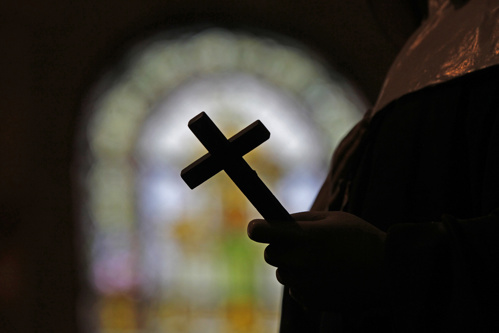It its ruling, the Supreme Court sided with Catholic Charities Bureau after it fought the State of Wisconsin over being forced to participate in a state unemployment program. The ministry, part of the Diocese of Superior, wanted to participate in a Catholic unemployment program instead.
The case is Catholic Charities Bureau, Inc. v Wisconsin Labor & Industry Review Commission.
Catholic Charities was represented by Becket, the religious liberty law firm.
Since other faith-based nonprofits in Wisconsin are not required to participate in the state unemployment program, Catholic Charities Bureau argued it was the victim of a First Amendment violation for being required to do so.
The State of Wisconsin argued the organization does not qualify for an exemption because its day-to-day work doesn't involve religious teachings. That argument was good enough for the Wisconsin Supreme Court, which ruled the ministry’s care of the poor and needy was not a “typical” religious activity since it serves non-Catholics, too.
 The nine justices, however, ripped into that ruling.
The nine justices, however, ripped into that ruling.
Colten Stanberry, a Becket attorney, says the law firm was “really excited” to get a 9-0 ruling, written by Justice Sonia Sotomayor, that said government doesn’t have the right to draw lines about theology.
Sotomayor, one of the high court’s most liberal justices, wrote that Wisconsin violated the U.S. Constitution by imposing a “denominational preference by differentiating between religions based on theological choices.”
Farther down in her opinion, Sotomayor said the Court recognizes religious doctrine can be expressed in worship, proselytization, religious education, or performing charitable work. All of those, she wrote, are “fundamentally theological choices driven by the content of different religious doctrines.”
According to Becket, most Catholic dioceses have a ministry arm that serves the poor and the needy as the Bible instructs Christians to do.
The mission statement for Catholic Charities Bureau, found online by AFN, states its goal is to “alleviate human suffering by sponsoring direct service programs for the poor, the disadvantaged, the disabled, the elderly, and children with special needs.”
"It is a win for people of all faiths," Stanberry, speaking of the ruling, concludes. "You never know what community a person of faith is going to be, and so you don't want the government deciding what it thinks is 'typical' religious activity."







